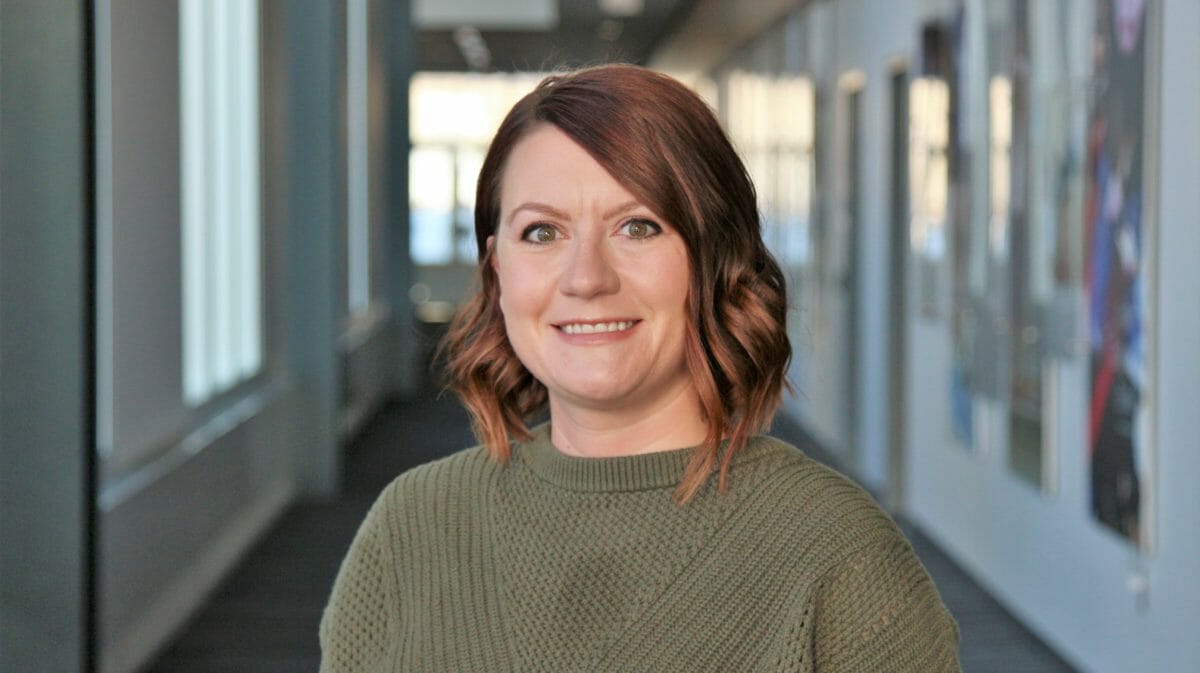Meet Our Team: Taylor Winkel, Family Support Coordinator
Taylor had been looking for a new job when she came across a posting for a position at LifeSource. The role, Family Support Coordinator, wasn’t exactly the career path she had planned for herself, but she decided to apply.

While going through the interview process Taylor found that her undergraduate degree in Genetics, and two master’s degrees in Public Administration and Emergency Management, and Macro-Level Social Work gave her lot of knowledge and experience to draw from for this unique role. As a tissue transplant recipient, Taylor knows the impact donors have and the lasting legacy they leave.
While going through the interview process, Taylor learned about LifeSource’s mission and she got the opportunity to meet the organizations passionate team members. It just felt right; she accepted the job with LifeSource as a Family Support Coordinator and joined the team in early 2019.
What Does a Family Support Coordinator Do?
Taylor explains, “My amazing team and I meet with families to talk about donation, often under very emotional and difficult circumstances around end of life. I get to share my story, I get to hear their stories, and I get to inform them of the process of donation, the lasting legacy it leaves, and the lives their loved ones will inevitably save through their death.”
Sadly, every time Taylor goes into work, it means someone has died unexpectedly and she will meet with a devastated, grieving family at their darkest time. Prior to meeting with the family, Taylor connects with the hospital care teams to learn more about the patient and to understand the family’s needs. “We would not be able to coordinate these conversations with families – at least not easily or successfully – without the nurses, social workers, chaplains, child-life staff, etc.,” said Taylor.
An organ donation case could last anywhere from 24 to 72 hours – sometimes shorter or longer. Many times, a Family Support Coordinator will have separate conversations with family members to gain their understanding of donation. Then, they typically stay with families on the first day of each case until the family leaves the hospital.
As the case progresses, Taylor is always ready to answer questions and continues to provide updates via email or phone call to the family. Then, she is typically on-site at the hospital prior to the donation recovery surgery and will follow-up with the family members with high-level updates and basic details about the organ recipients: limited to age, gender and state of residence.
Generous donors and their families continue to inspire Taylor every day. Every family member will remember their loved one’s legacy and the life they shared; but through donation, they also get this additional element of hope and healing. Organ, eye and tissue donation provides families with some silver lining, that their loved one didn’t die in vain. The hospital care teams tried everything they could to save their life, and now they are able to impact many lives.
The One Thing To Do as You Consider Donation
Taylor further explained that when people are not registered as donors, they aren’t exactly saying “no” to donation; instead, the decision would be left to their family at the time of their loved one’s death. This can leave families with additional pressure to make another end-of-life decision on behalf of their loved one. This is why it is important to make a decision about donation and share your decision with your family.
“No matter what your decision is for yourself about donation. No matter what your loved one’s decision is. The most important thing is to make sure your family knows exactly what you want. Whether that is through donor designation, through a health care directive or a living will; it is important to have those conversations.” – Taylor Winkel
When Taylor works with families that know their loved one’s decision, it is much easier for them to move through the process – whether it is a yes or a no. Taylor encourages families to discuss end-of-life decisions with their loved ones, even though it might be uncomfortable.
 Skip to main content
Skip to main content
